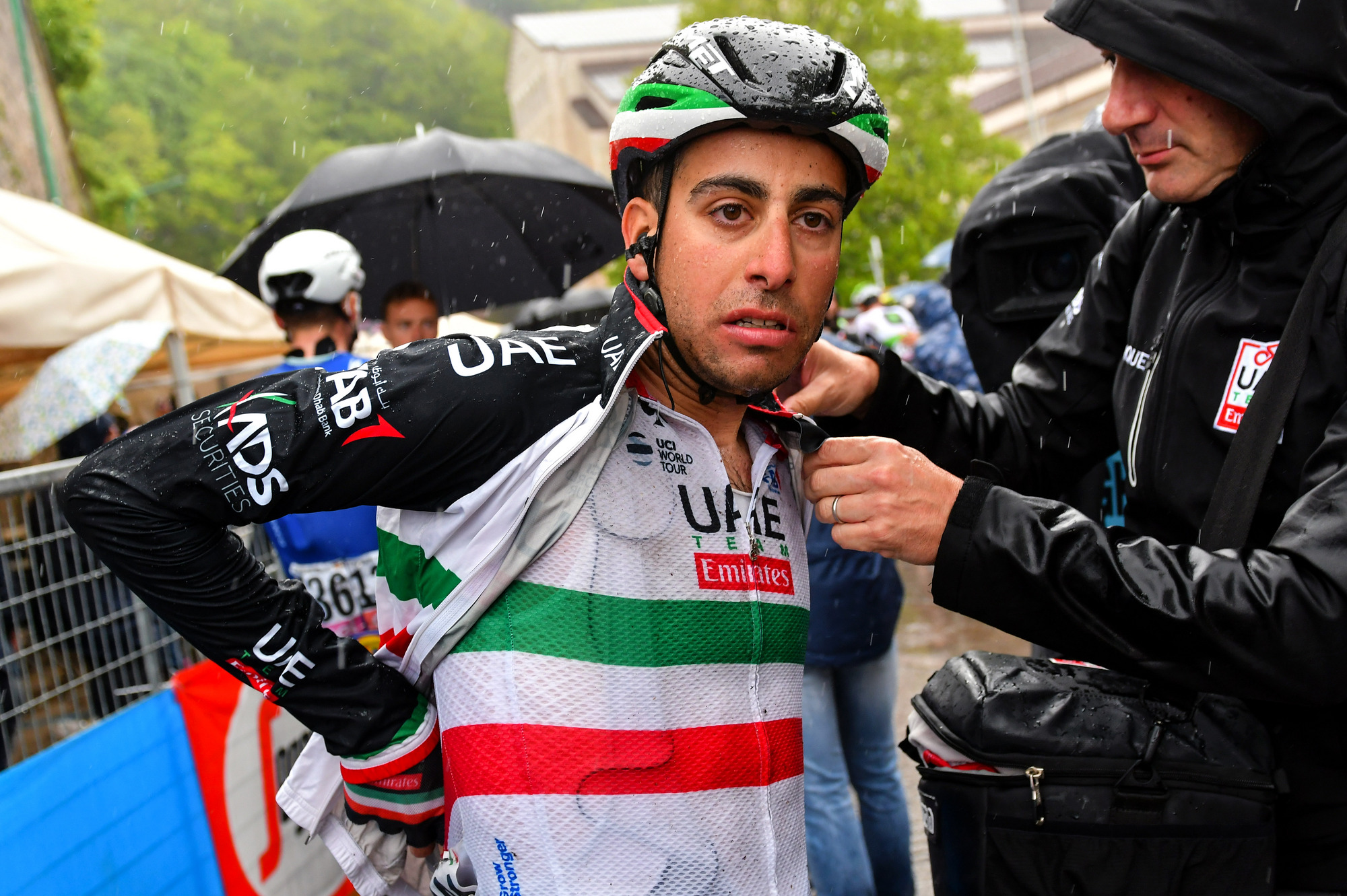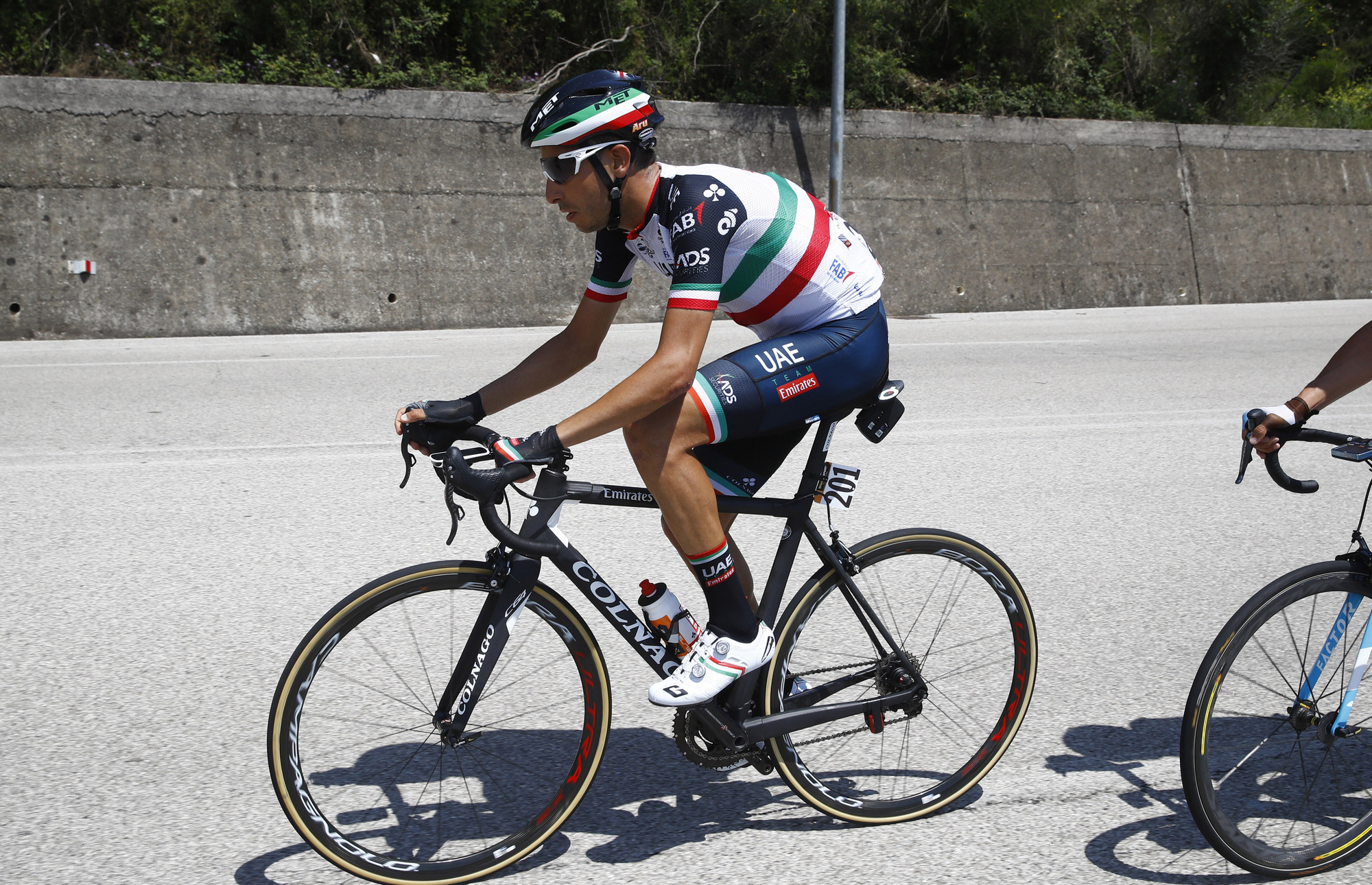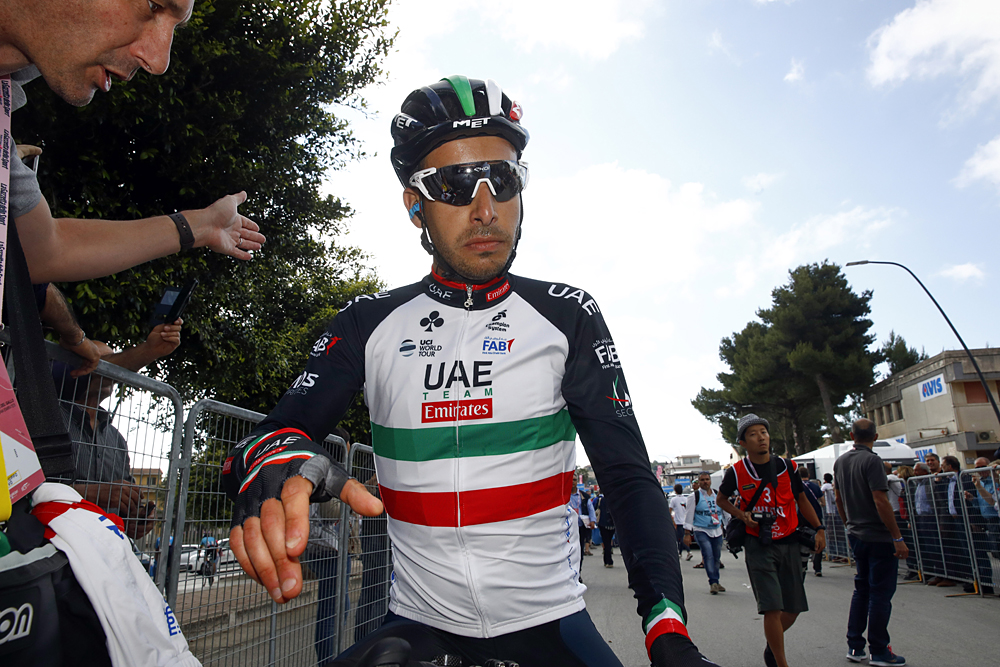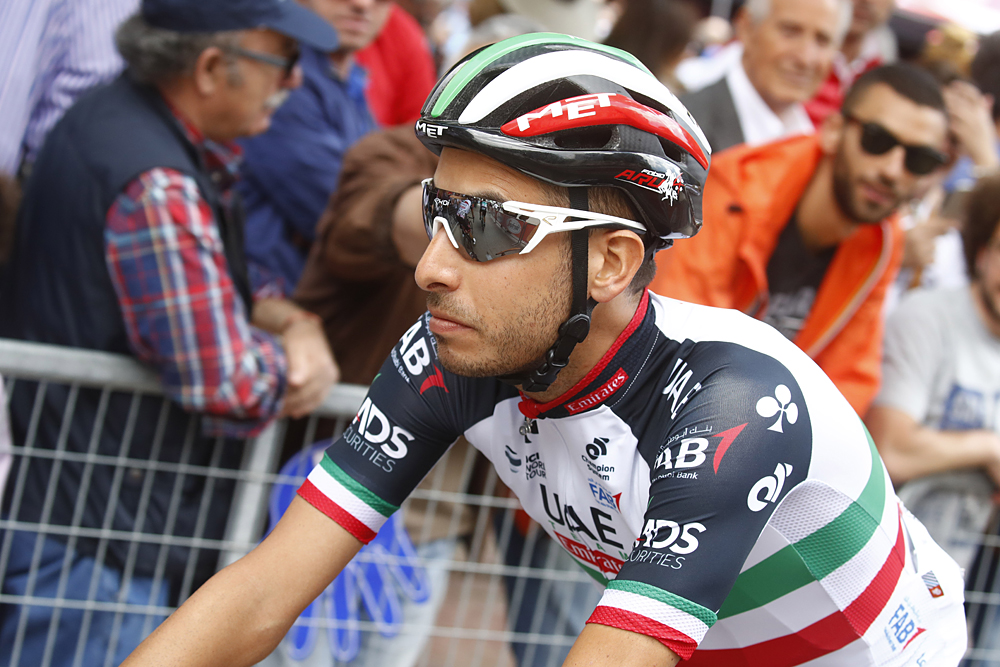Aru: What can I say? I'm only human
Italian champion's hopes fade on Gran Sasso d'Italia




The verdict was already being written up in the sala stampa as Fabio Aru descended from the summit of Gran Sasso d'Italia in a cable car, where he was doubtless hoping to avoid the crew from RAI television who had secured passage in the same cabin.
"Aru, the excuses are over: Think about the Tour," read the banner headline in Tuttobici on Sunday evening, summing up the general feeling that the Italian champion's Giro d'Italia may already be run even before the race has truly begun.
There had been mitigating factors behind much of the time lost by general classification contenders in the opening week of racing in Israel and Sicily, but on the sparse and exposed slopes of Gran Sasso d'Italia, there was no longer any hiding place.
The pace-making of Aru's former squad Astana and the Mitchelton-Scott team of maglia rosa Simon Yates had already whittled down the leading group by the time the race hit the snow-banked upper reaches of the climb, and Aru was already flagging even before he lost contact with the group with a little over two kilometres to race.
It will be of scant consolation that Chris Froome was distanced at more or less the same point and conceded more or less the same kind of time: for now, at least, the Sky rider is not the Briton to follow on this Giro. Aru crested the summit in 24th place on the stage, some 1:14 down on the stage winner Yates. In the overall standings, he is now 2:36 off the pace in 15th place.
"It didn't go very well," Aru said with considerable understatement after his cable car had reached its terminus in the village of Assergi at the base of the climb. "Today was obviously a negative day for me. My legs weren't turning over well, otherwise, I wouldn't have been dropped.
"I felt without strength, I wasn't able to keep up with the rhythm of the others on the climb and that's why I got dropped."
The latest race content, interviews, features, reviews and expert buying guides, direct to your inbox!
Although Aru placed a respectable 6th in the Tour of the Alps ahead of the Giro, he was clearly lacking the vim of men like Thibaut Pinot (Groupama-FDJ) and Domenico Pozzovivo (Bahrain-Merida) in the high mountains.
The opening exchanges of this Giro were hardly more encouraging. A low-key performance in the Jerusalem time trial could be explained readily by Aru's desire to avoid crashing on the technical course, but the loss of 10 seconds on the explosive finale at Caltagirone on stage 4 was a more ominous portent for the Sardinian.
While Aru finished safely alongside the main podium contenders on the summit finishes at Mount Etna and Montevergine di Mercogliano, the true state of his condition remained unclear. He was following moves rather than instigating them, and then, as the altimeter hit 2,000 metres at Gran Sasso d'Italia on Sunday afternoon, he could follow no more.
"It was a negative day and in the final kilometres I wasn't good," Aru said. "It was a giornata no, an off day, and a day like that can happen over a race of 21 days. What can I say? I'm human. I'm certainly not happy, but we're already thinking of the next days."
Much like Froome, Aru insisted before the Giro that the third week of the race would be pivotal, and suggested that he had built his preparation around reaching a peak in the high Alps. Easier said than done, of course, though Aru has previous in this regard. In 2015, after all, he put another slant on a sometimes trying Giro with some remarkably spry climbing in the race's dying days, where back-to-back stage wins helped to secure second place overall.
On Monday, the Giro breaks for its second rest day, and although the second week of the race is punctuated by some potentially perilous stages, the next set-piece finale for the general classification contenders will not come until the vertiginous slopes of Monte Zoncolan next Saturday. The problem for Aru is that he may already have left himself with too much of a mountain to climb.

Barry Ryan was Head of Features at Cyclingnews. He has covered professional cycling since 2010, reporting from the Tour de France, Giro d’Italia and events from Argentina to Japan. His writing has appeared in The Independent, Procycling and Cycling Plus. He is the author of The Ascent: Sean Kelly, Stephen Roche and the Rise of Irish Cycling’s Golden Generation, published by Gill Books.